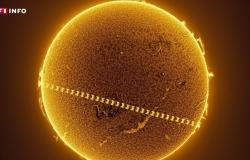The New Popular Front was born in the emergency after the dissolution of the French National Assembly. The alliance of the left brings together the Socialist Party, the Communist Party, the Ecologists, La France insoumise (LFI) and Raphaël Glucksmann’s party, Place publique. The New Popular Front came second, with 28% of the vote, ahead of the presidential camp (20%).
Calls for the withdrawal of candidates who came third are increasing in view of the second round, with the aim of avoiding the dispersion of votes and blocking the RN. However, certain personalities refuse to call for votes for the La France Insoumise candidates, which they equate with an extreme party as damaging as the National Rally.
MR President Georges-Louis Bouchez considered that LFI could not be considered a republican bulwark against the RN. “The candidates who came in third place against these two extremist populisms are the only democratic bulwarks,” he wrote on X.
Maxime Prévot of the Engagés, who is expected to ally himself with the MR in a future Walloon government, is not on the same line: “Faced with the extreme right, there is no need to procrastinate: we must block it by ensuring that the candidate ranked highest among the other parties is supported by all the others,” he responded to Belga.
Macron evokes a “civil war”: here are the ten French cities where it risks heating up following the National Rally’s success
He thus qualified the remarks of his colleague Catherine Fonck, who noted on Sunday evening that “63% of French people” had voted for “the extremes” in the first round, relegating the entire New Popular Front to the far left.
However, the French Council of State estimated in March that France Insoumise, like the French Communist Party, were part of the “left” bloc on the political spectrum and not of the far left. The RN, for its part, should be classified as far right.
Reactions also came from the French-speaking Belgian left: Paul Magnette (PS) regretted a “historic turning point in the political landscape” with the victory of the RN in the first round. “However, we unfortunately see it in several European countries: where the extreme right is progressing, freedoms are regressing.”
Rajae Maouane, resigning co-president of Ecolo, praised “the courage of the Democrats and their call to vote for who can still beat the xenophobia and mysogyny of the Le Pen clan”.
For Raoul Hedebouw, president of the PTB, the results are to be attributed to “the seven years of anti-social and authoritarian policies of President Macron”. Opposing the candidates of the New Popular Front and the RN is equivalent to “playing into the hands of the extreme right”, according to him.
The second round of elections will take place on Sunday July 7 in France.






